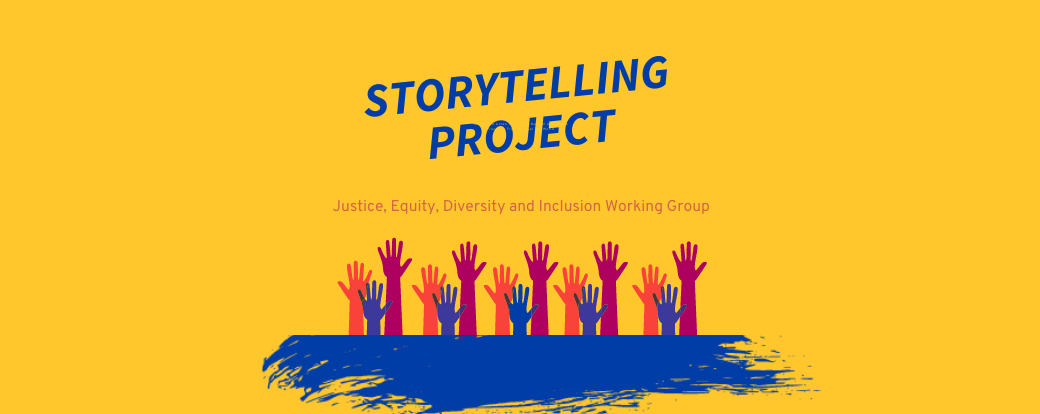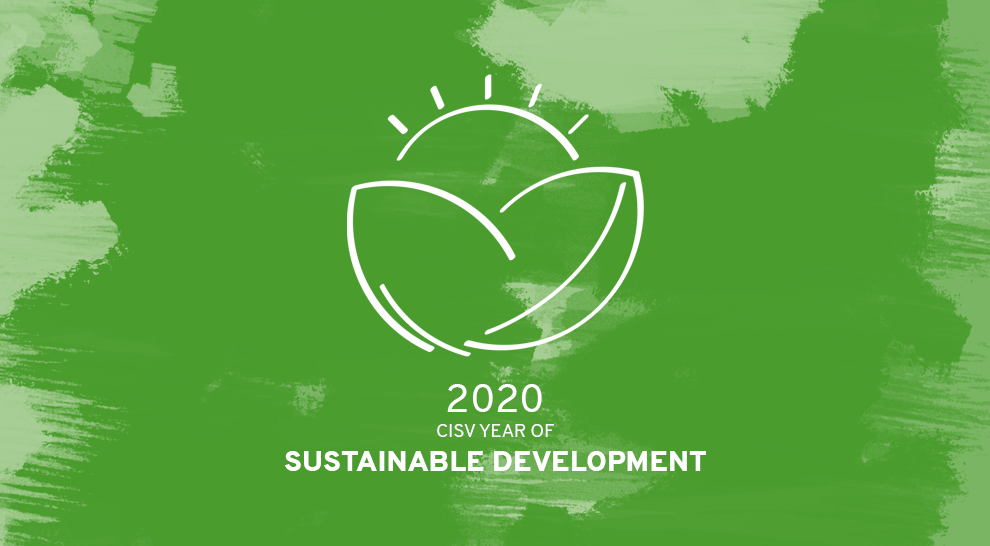9 Diversity Hacks for Leaders and Staff in International Programmes
Diversity Resources
April 10, 2018When Diversity Leads to Conflict: Dealing with a Multicultural Team
June 10, 2018As our major programme season approaches, leaders and staff all around the world are getting ready. Here are nine easy tips from the Diversity Campaign Team on how to best embrace diversity in CISV’s international programmes.
Enjoy them and share them with your fellow leaders and staff members!
1 – Be prepared to switch languages at any time and practice using English as your main language!
It is often that you feel uncomfortable speaking another language in front of other people, especially in front of people who speak the same language as you (read this article for more input).
As English is CISV International’s official language for programmes, you and your delegation might have to speak English at some point in order to communicate with others. It is important to make sure that participants don’t create “bubbles” with delegations speaking the same language. Everyone must be willing to do their best to communicate, even if they don’t speak a lot of English. If you do not try to communicate, it could lead to others feeling excluded. As a leader you may be translating for your delegation which will have a big effect on their experience. How? Find out in this study.
There are several fun ways to get your delegation familiar with English: watch a movie together or in a completely different language but with subtitles, learn the CISV song together, sing international songs, have a quiz in English about other countries/geography, etc.
However, don’t forget that having several languages in a camp is also what makes programmes diverse and fun! Use National activities and informal times to share your own language and learn some new words.
Bonjour, Hyvää huomenta, dobré ráno,Buenos días, Bom Dia, chào buổi sáng, Gudde Moien, приятен апетит, Buon Appetito, გემრიელად მიირთვით, Guten Appetit, Goodnight. Make sure your participants come back home with basic words from all delegations to teach their friends!
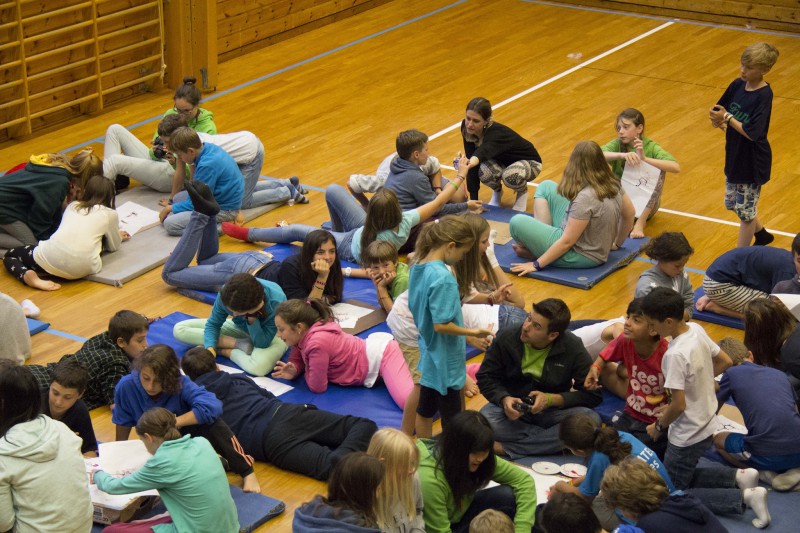
2 – Learn about other delegations’ countries before your programme
Sometimes we have limited information about other countries. For example, did you know not all French people live in Paris? However, some delegates or even leaders and staff can be very sensitive about other people’s lack of knowledge about their country.
Learn about common national stereotypes and do everything you can to avoid them. Ask questions, get curious, talk with people, and always stay open minded. Not only you will learn a lot about different countries and cultures, but it is also a great way to make friends and to build a stronger group within the programme.
Do some basic research about all nations joining your programme with your delegation before you leave. You can even prepare questions or challenges for your participants to learn more during the programme.
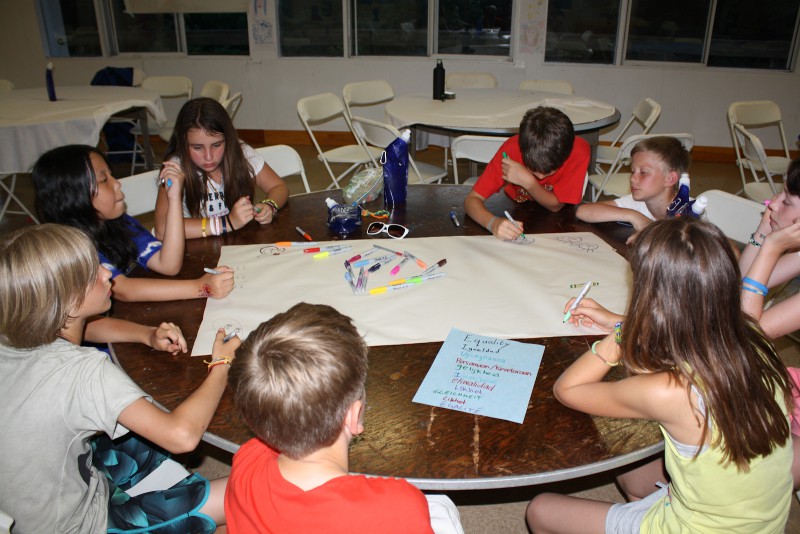
3 – Avoid unnecessary gender distinctions and gender stereotyping
Gender can be a rather sensitive topic. There are people that are uncomfortable in identifying with or accepting a binary representation of gender dividing between boy and girl, male and female, man and woman.
Whenever possible, programme staff and leader groups should avoid this distinction. Avoid asking participants to set up boy-girl pairs for activities such as gala nights or dancing activities (for example during national nights) and discourage planning groups to run activities that include games or energizers where boys and girls have to compete or play in teams against each other, unless this distinction is part of the educational goal of the activity and is addressed in a discussion.
In some instances, for example in setting up dormitories in camp-based programmes, CISV’s programme guides and CISV International rules mandate a separation between boys and girls. Even in these cases it is up to adults in roles of responsibility in programmes to avoid stereotyping these distinctions. For example, don’t use pink and blue to write the names on dormitory doors, or stereotypical occupations when playing role play activities! (ie girls are teachers or nurses and boys are firefighters or astronauts).
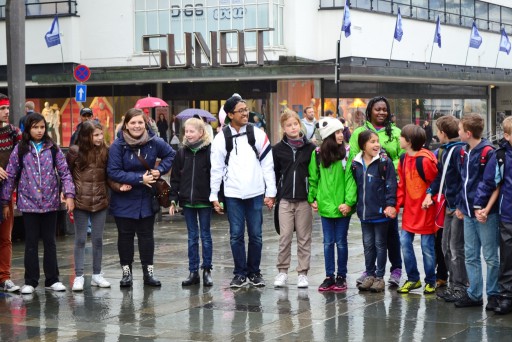
4 – Step back from your habits and take some risks!
No, lunch time isn’t necessarily at 12:00. And yes, in some countries you have to throw toilet paper in the trash. Maybe you won’t have the same opinion as your peers when talking about a sensitive topic. That is part of the experience and that is why diversity is such an important aspect of CISV International programmes.
This is possibly the most important of tip in this list and the one that will make all the others work best! One of the most important roles of leaders is preparing and training their delegates before a programme and supporting them during their time away from home.
In doing this, both before and during the programme, leaders should encourage their delegates to keep an open mind, seek the diverse experiences, and be ready to take some risks. Feel uncomfortable at times, eat food you have never tried before, listen to people, and change your habits for a few weeks.
You will be surprised that you will miss those new habits when going back home!
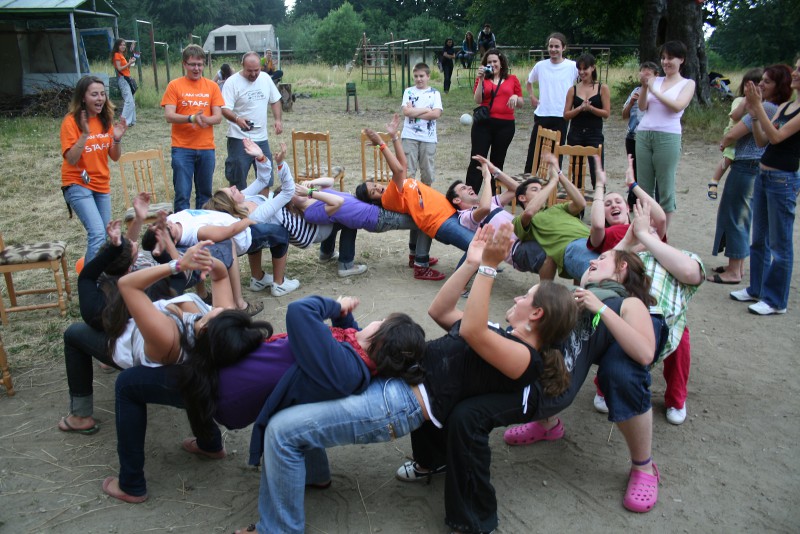
5 – Observation is your friend: learn from each others’ experiences
When in a new environment, observe and learn. Have you noticed different ways of greeting someone or serving food? Everybody in CISV camps is a diverse and interesting individual, and there is a lot that participants can learn just by observing and being curious about each other.
For leaders’ and staff groups this means that there is a lot of resources that they can draw from for insightful discussions just by encouraging participants to to talk about how they do things at home, habits, and way of life with each other. Make sure you create a safe environment for participants to share these topics and discuss. Encourage them to ask questions, be curious, and respectful.
In addition to asking participants to observe, talk, and get to know each other during their free time and meals, you may also want to plan activities about cultural differences. Remember that sharing different cultures and experiences can be done in many different ways depending on the age group and the setting. Think about a game of charades or an arts-and-craft activity for the youngest participants or a deeper discussion on a specific topic for Step Up or Seminar participants.
The depth of the discussions will depend on the age of participants, the topics discussed, and the programme. A few tips to help facilitate good discussions include having smaller groups, allowing participants to share anonymously, and sharing your own experiences to encourage others to do the same.
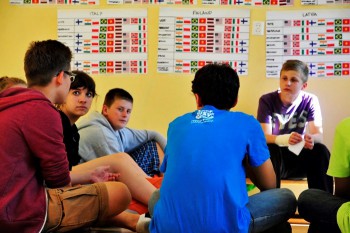
6 – Diversify your mind and step outside the box!
It is true that every day in a CISV programme has different activities, different groups, and different things to do. It is also true that there are many things that we always do in the same way in a camp and sometimes also across camps and decades.
A good way to open up to a diversity of experiences is to just change a little bit of the way we do everyday things in camps. Think about new ways of having your delegation time, of listening, or of participating. Encourage yourself to do different things everyday.
Stay open to new leaders and staff! They don’t have a CISV background? So what?! They will still have interesting ideas to bring to the table.
Similarly, staff groups and Chapters can step outside of the box of the “standard” way to plan camps. Think about different ways to organize meals, shower times, lullabies, excursions, or even the entire daily schedule.
Consider different and diverse topics for activities in order to stimulate your participants, and let their creativity be at the heart of the programme!
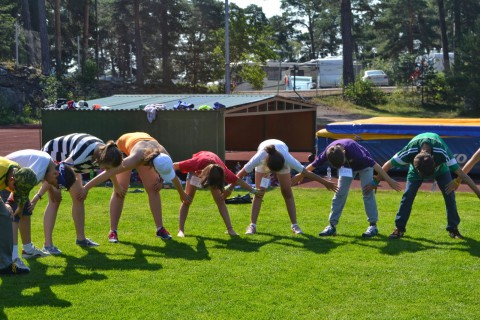
7 – Absorb as much as you can from your new environment
Have you ever considered that traveling, even within your own country, is a privilege?
Find the best ways to enjoy that privilege by being grateful for all the little things you are going to experience during your programme. Excursion days and visits are unforgettable and so is the new environment around you.
Enjoy the fact that you don’t have cellphones or the internet. Take this unique opportunity to cut off from technology and spend as much time as possible with the people around you.
Focus on little things : the fresh air before flag time, the songs the kitchen staff sings, the smell of the food that’s about to be served, the birds singing, the nature around you, or the lights in the street. Find new ways of enjoying your environment when you participate in a CISV programme, or traveling, and come home with memories and feelings you will never forget.
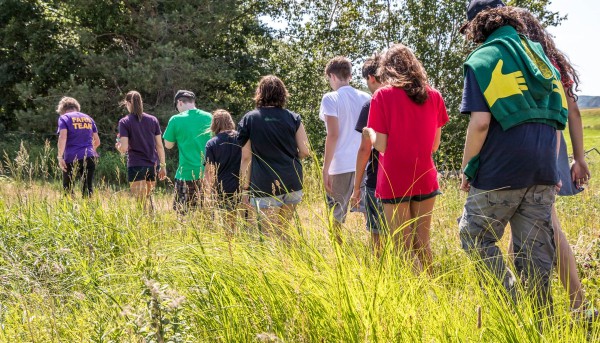
8 – Get your stomach ready for tasty diversity
Yes, you are going to taste new food and treats! Prepare for dozens of new candies to try or national dishes to taste, especially if you are going to Village. Don’t assume that you won’t like it. Try it. Be a role model for your delegates.
Don’t hesitate to bring typical food and snacks from your own country (Expert tip: why not divide everything into your participants’ suitcases in case one gets lost and to avoid overweight luggage charges). You can also bring back recipes from your programme to share with everyone at home!

9 – Be critical and don’t hesitate to share your opinion
Accepting and celebrating diversity doesn’t mean that you should agree with every single thing because you are tolerant. Don’t hesitate to express your thoughts about things and to be open-minded and honest with your leaders’ group and even with participants.
Some people might not have the same habits or culture as you. They might misunderstand or misinterpret what you say or do. There is nothing wrong with that! It is part of the learning experience.
Culture shock is definitely real and can become challenging especially in a context where you don’t know the people or the environment. This is particularly true in an Interchange programme, where you are confronted intensely with one particular culture. But don’t worry, you are not alone!
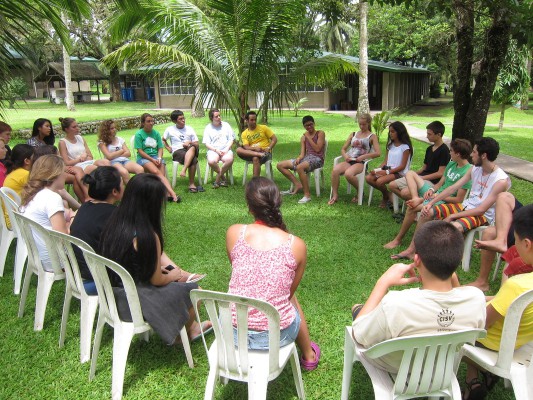
…and we will talk about culture shock and issues related to it in a future article!

